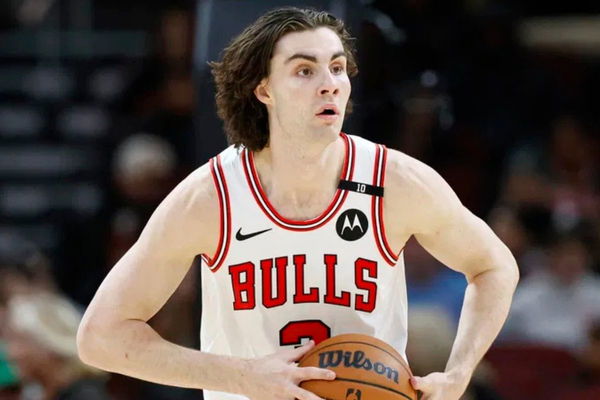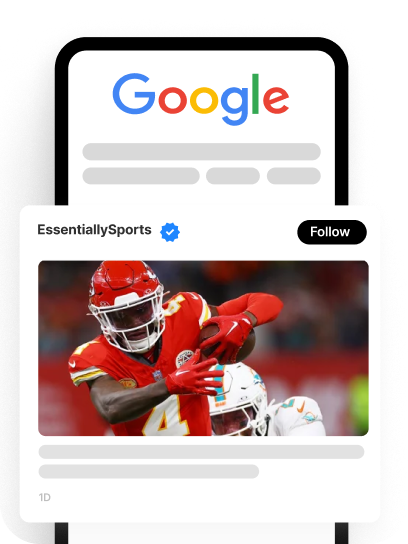
Imago
credits: imagn

Imago
credits: imagn
Two young players, two restricted free agency decisions, but worlds apart in what’s at stake. On paper, Jonathan Kuminga and Josh Giddey entered the same market. Both are talented, both have suitors, and both are navigating the delicate balance between immediate security and long-term upside. Yet, according to ESPN’s Tim Bontemps, their choices carry wildly different consequences.
Watch What’s Trending Now!
One of them, insiders hint, has a cushion that turns waiting into a real option: the kind of setup where patience can actually pay off. The other? He’s staring at a timeline that punishes hesitation, where one wrong decision now could cost him a fortune he’ll never recover. What’s creating that gap isn’t obvious at first glance, but it changes everything.
Teams often see restricted free agency as a leverage. “If you’re a team like the Bulls, probably the average person would sit there and think, ‘All right, there’s no other place for this guy to get paid, so we can turn the screws on this guy and give him as little money as you want,’” Bontemps said on The Hoop Collective. That logic sounds good on paper until the human side and the math of qualifying offers come into play.
For Giddey, the gap, or “delta” as the insiders called it, isn’t too punishing. His qualifying offer is about $11.5 million, and Chicago’s reported offer hovers near four years, $80 million. “Let’s say the Bulls are offering 4 for $80M… you take $11 million, Josh makes this year. He’s got to sign a three-year deal for $69 million to get his money back. A very nice deal to get his money back, right? I think that’s a reasonable deal for him to get,” Bontemps explained. In essence, Giddey can afford to wait, his bridge isn’t that rickety.
Kuminga’s? A chasm. His qualifying offer sits around $7.5 million, but the extension figures being floated start over $20 million per year with potential north of $45 million early. “For him to get the number back, he’d have to have a salary next year that starts somewhere around $40 million, which is almost in any scenario extraordinarily unlikely for him to get to,” Bontemps added. ESPN’s Brian Windhorst doubled down: “He may make a lot of money in the future, but that’s different about making the money back right away.”
The takeaway is stark: what is a leverage play for one is a high-wire act for the other. “Whereas Giddy… there’s not a lot of risk to take the qualifying offer. In the Jonathan Kuminga situation… there’s almost no chance he would make that money back in a future deal,” Bontemps concluded. One can take his chances; the other almost can’t.
Why Giddey Holds a Different Hand in Chicago
Josh Giddey didn’t just fill a role in Chicago, he exceed expectations. After arriving in the Alex Caruso trade, the 22-year-old averaged 14.6 points, 7.2 assists and 8.1 rebounds per game in 2024–25, while shooting a career-best 37.8% from deep. “Giddey’s in a situation in Chicago where he’s going to have the ball in his hands, he’s going to be starting. He’s going to be the primary facilitator,” Tim MacMahon noted.

Imago
Dec 8, 2024; Chicago, Illinois, USA; Chicago Bulls guard Josh Giddey (3) looks to pass the ball against the Philadelphia 76ers during the first half at United Center. Mandatory Credit: Kamil Krzaczynski-Imagn Images
That production gave the Bulls a clearer reason to commit. “This team… just acquired him for Alex Caruso and… did just start him all year at point guard in theory is going to value him going forward,” Bontemps said. It wasn’t just about potential anymore, because Giddey proved he could run an offense, and that shifted his leverage.
Ultimately, the Bulls are expected to find a middle ground. “It would make sense for the Bulls to find a way to get a deal done and I would guess they ultimately do get some deal done,” Bontemps predicted. For Giddey, patience might mean a slightly better number. For Kuminga, patience could cost him everything.
Unlike the Bulls, the Warriors are still positioning themselves as championship contenders for the 2025-26 season. With veterans like Jimmy Butler set to earn $54.1 million in the upcoming season and expected to play a significant role in year two with the Warriors after having a full training camp under Steve Kerr, Kuminga’s leverage is substantially diminished.
The Warriors’ win-now mentality means they’re less likely to prioritize Kuminga’s contract demands over team flexibility, especially as they integrate Butler into their championship core. This stark contrast in team situations explains why Kuminga’s patience in negotiations could ultimately backfire, while the rebuilding Bulls can afford to compromise with Giddey.
